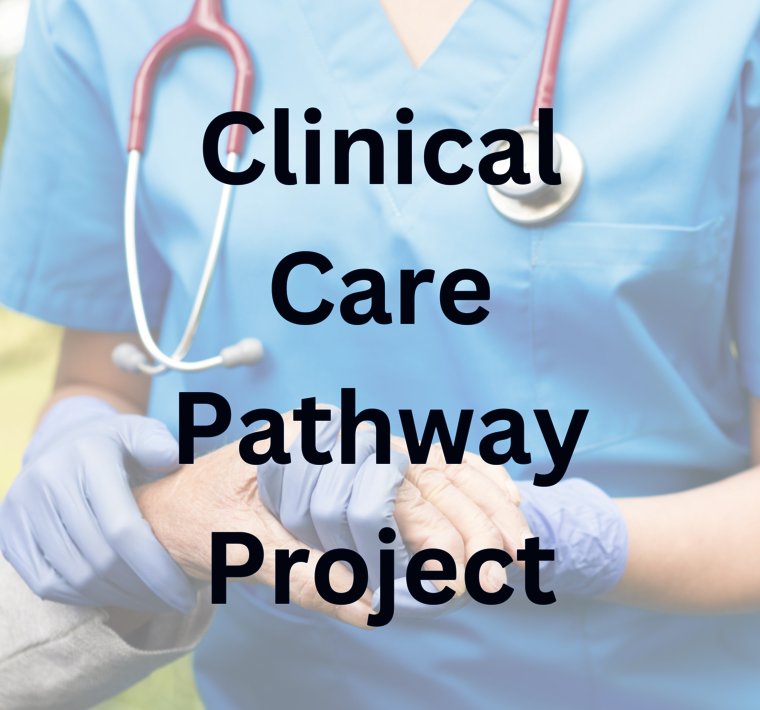STATIM Projects

At STATIM, we are committed to exploring novel ways healthcare can be optimised in Toowoomba, the Darling Downs and regional Australia.
Our Projects currently include:
Mentor Accelerated Program (MAP)
Health Emerging Leaders Program
Clinical Care Pathway Project
Learn More About Our Projects


Health Emerging Leaders Program (HELP)
HELP
Empowering tomorrow's healthcare leaders
The Health Emerging Leaders Program is a dynamic initiative collaboratively designed by STATIM and Power Tynan. This twelve-month program is tailored to empower both clinical and non-clinical professionals, transforming them into effective leaders within the healthcare sector. Ideal for aspiring leaders and current heads of departments looking to enhance their leadership capabilities, the program equips participants with essential skills to excel in their roles.
Program Objectives
Our program is grounded in a Business Team Individual (BTI) mindset, recognizing that successful organisations thrive on the synergy of effective teams and capable individuals. We focus on identifying business requirements first and then providing tailored guidance and support to help individuals realise their objectives. This approach ensures mutual benefit for the individual, the team, and the organisation.
Key goals include:
- Develop Leadership Skills: Equip participants with core leadership competencies such as communication, decision-making, conflict resolution, and team management.
- Foster Critical Thinking: Encourage problem-solving and innovative thinking to tackle complex healthcare challenges.
- Build Emotional Intelligence: Develop emotional intelligence for effective collaboration, empathy, and patient-centered care.
- Cultivate Mentorship and Coaching Abilities: Enable participants to mentor and coach junior staff, promoting professional growth.
- Understand Healthcare Management: Provide insights into budgeting, resource allocation, and regulatory compliance.
- Develop Change Management Skills: Equip participants to lead and adapt to changes in healthcare, including technology adoption and policy shifts.
- Promote Diversity and Inclusion: Emphasise the importance of creating inclusive work environments and provide strategies for promoting diversity.
Program Structure
PHASE ONE: Introduction and Adaptability
- Introduce program objectives and ensure flexibility based on participant feedback.
- One day of collaboration to map program delivery expectations and outcomes, tailored to your business’s needs.
PHASE TWO: Program Delivery
- Delivered over eleven months with a total of seven workshop days, including program introduction and final project presentation.
- Workshops held every six weeks, with interim tutorials and panel sessions for continuous learning and support.
- Topics covered include:
- Self-Exploration and Resilience: Resilience, time management, change management.
- Leadership Development: Differentiating roles, motivation strategies, team management.
- Effective Communication: Negotiation, tough conversations, team communication techniques.
- Business Improvement Part 1: Business growth, customer segments, optimization.
- Business Improvement Part 2: Commercial acumen, lean management, project fundamentals.
- Future Planning: Strategic goals, business rhythm, operational planning.
- Wrap-up Session: Final presentations, self-confidence, coaching skills.
PHASE THREE: Presentation to Management
- Participants present their learnings and proposals to management.
PHASE FOUR: Post-Sessions Evaluation
- Diagnostic assessments to measure improvement.
Program Evaluation
Participants are assessed through pre- and post-program assessments, practical skill application in day-to-day operations, regular feedback from mentors and peers, and a final project presentation showcasing leadership development.
Program Benefits
- Enhanced leadership skills and competencies.
- Improved critical thinking and problem-solving abilities.
- Stronger emotional intelligence and team-building skills.
- Comprehensive understanding of healthcare management.
- Increased proficiency in budgetary and HR skills.
- Ability to navigate and lead in a changing healthcare landscape.
Graduation and Certification
Upon successful completion, participants receive a certificate of completion with CPD allocation. Graduates will be well-equipped to undertake leadership roles or execute their current roles with greater confidence and competence, positively impacting patient care and the healthcare system.
Program Investment
We offer flexible pricing options to suit the needs of your organisation. These options include per participant pricing and per facility pricing, allowing for widespread participation and fostering a culture of leadership development across all levels and disciplines. Our commitment to transparency ensures that every investment in this program delivers tangible value and impactful results for your team and organisation.


Mentor Accelerated Program (MAP)
MAP
Genuinely ‘growing your own’ with STATIM
At STATIM, we are committed to addressing the critical Registered Nurse (RN) workforce deficits through our innovative Mentor Accelerated Program (MAP). This structured initiative has already demonstrated significant success within two Residential Aged Care Facilities (RACF) on the Darling Downs, both in private and public sectors.
What is MAP?
MAP is designed to fast-track the development of beginning practitioners by pairing them with experienced Clinical Mentors (CM). This mentorship approach ensures rapid acquisition of essential skills, knowledge, and understanding needed to excel in specific facilities.
Program Goals
The primary aim of MAP is to recruit and train individuals, integrating them as permanent staff members within the partnered facility. By evaluating candidates for their clinical skills and potential for long-term employability, we optimise the success and retention of new RNs.
Proven Success
Our program has been successfully implemented at two Darling Downs RACF facilities, resulting in the onboarding of two permanent RNs who have become competent and confident clinicians.
Steps to Success
- Concept Socialisation with site Executive Directors
- Endorsement from site Executive Directors underscores MAP’s potential to effectively address RN workforce deficits.
- Operational Planning with Facilities
- Tailoring MAP to meet specific needs of each facility.
- Setting clear goals and success metrics.
- Ensuring community involvement, especially in rural areas, to integrate staff members into local events.
- Recruitment of Beginning Practitioners
- Selecting candidates with strong clinical skills and potential for long-term employability.
- Aligning with STATIM CM or site-appointed Clinical Facilitator.
- Program Execution
- Weekly reviews to monitor progress and gather feedback.
- Continuous program improvement based on feedback.
- STATIM’s ongoing engagement and support throughout the program.
- Onboarding Registered Nurses
- Streamlined onboarding process with complete documentation review.
- Ensuring smooth transition for new RNs.
Expected Outcomes
MAP aims to replicate its initial successes by ensuring all participants become skilled, confident clinicians. The program’s effectiveness will be measured by:
- Competency in administrative and clinical skills.
- Feedback from practitioners, mentors, and senior leadership.
- Successful permanent onboarding at health or aged care facilities.
Cost and Benefits
MAP is a 12-week program, fully integrated with local operational stakeholders. Benefits include:
- Compressing the need for Nursing and Midwifery Orientation days.
- Immediate commencement of probationary period and familiarisation of clinician with facility
- Reducing preceptor dedication from facilities.
- Comprehensive support from STATIM in interviewing, onboarding, and practice observation.
Project Evaluation
Success will be measured through both qualitative and quantitative data, focusing on:
- Enhanced clinical competence.
- Improved communication and collaboration skills.
- Enhanced critical thinking and decision-making abilities.
- Ensuring patient and resident safety and quality care.
- Contributing to rural facility recruitment and retention strategy.
By leveraging the learnings from our initial implementations and continuously refining our approach, STATIM is confident in enhancing the RN workforce pipeline at regional and rural sites, ultimately improving the quality of care provided.


Clinical Care Pathway Project (CCPP)
CCPP
Enhancing care quality and financial stability
STATIM presents a comprehensive proposal to develop tailored Clinical Care Pathways for Residential Aged Care Facilities (RACFs). Leveraging our expertise in healthcare business consulting, we aim to enhance clinical outcomes, drive financial sustainability, and mitigate risks. By standardising care practices, optimising resource and funding allocation, and promoting resident-centered care, STATIM empowers RACFs to deliver high-quality care while containing costs.
Background
As the aging population grows, RACFs face increasing pressure to provide quality care amidst fragmented processes, variations in practice, and rising costs. Developing Clinical Care Pathways offers a strategic solution to these challenges by standardising care delivery, enhancing coordination, and improving resident outcomes. This approach ensures clinical outcomes and accreditation standards are met while establishing resilient funding frameworks.
Proposal
STATIM proposes to collaborate with RACFs to develop customised Clinical Care Pathways tailored to their specific needs and resident populations. Our staged approach involves:
- Scoping: Site selection, local scoping, and gap analysis to identify opportunities for Clinical Care Pathway support.
- Prioritisation: Developing a prioritisation map to achieve compliance with key care documents and resident needs using a triaged methodology.
- Execution: Implementing assessments and interventions based on the prioritisation step.
- Education and Embedment: Creating "cheat sheets" for staff, using selective language to optimise clinical outcomes and funding models. Rolling out a strategic schedule for ongoing maintenance.
- ROI Review: Demonstrating compliance with ACQSC standards and quantifying the revenue impact by resident class influence.
Strategic Fit
The development of Clinical Care Pathways aligns with RACFs' strategic objectives to improve care quality, enhance operational efficiency, and mitigate risks. By standardising processes and promoting resident-centered care, STATIM's proposal supports RACFs in achieving their long-term goals of delivering high-quality, cost-effective care.
Economic Case
Investing in a Clinical Care Pathway project offers significant economic benefits for RACFs, including:
- Cost Containment: Standardising care practices and optimising resource utilisation to reduce hospitalisations, medication errors, and operational inefficiencies.
- Revenue Enhancement: Protecting and enhancing revenue streams under value-based reimbursement models, ensuring clinical assessments reflect residents' actual statuses.
- Efficiency Gains: Streamlining workflows and optimising staff time, resulting in operational efficiencies and resource reallocation.
- Risk Reduction: Mitigating legal, regulatory, and clinical risks, reducing liability costs, and safeguarding financial stability and reputation.
People
STATIM's team consists of experienced healthcare professionals with expertise in aged care, ANACC funding models, clinical care pathways, quality improvement, and risk management. Our dedicated consultants will collaborate closely with RACF staff to ensure successful development and implementation of tailored Clinical Care Pathways.
Stakeholder Engagement
We recognise the importance of engaging key stakeholders, including residents, families, staff, and regulatory authorities, throughout the development and implementation process. By fostering open communication and collaboration, we ensure that Clinical Care Pathways reflect the needs and preferences of all stakeholders.
Conclusion
STATIM's proposal to develop Clinical Care Pathways for RACFs offers a strategic solution to enhance clinical outcomes, drive financial sustainability, and mitigate risks. By standardising care practices, optimising resource utilisation, and promoting resident-centered care, RACFs can achieve operational excellence and deliver high-quality care that meets the evolving needs of their residents. Investing in Clinical Care Pathways developed by STATIM is a prudent business decision and a commitment to excellence in care delivery and stakeholder satisfaction.


More To Come
Projects
STATIM is working on more projects. These are always centred around our theme for liveability and sustainability through the lenses of supporting our clinicians and facilities.
Watch this space for more exciting projects to be announced.
Contact us today to discuss these opportunities
Contact Ust3://page?uid=89



